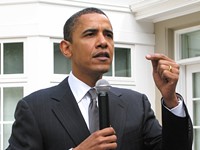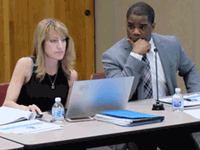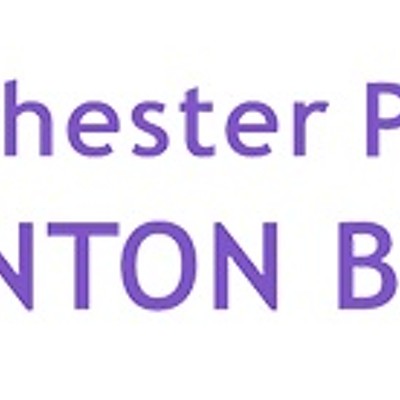[
{
"name": "500x250 Ad",
"insertPoint": "5",
"component": "15667920",
"parentWrapperClass": "",
"requiredCountToDisplay": "1"
}
]
Immigration, the economy, inequality, climate change, health care, terrorism: candidates for president will have plenty to talk about over the next year and a half. Something to add to that list: government surveillance.
Tension between civil rights and the fear of enemy attack seems unavoidable. But too often, fear leads us to question authority too little, and give up too much.
Thanks to Edward Snowden, we know some of what we've given up. Some. And last week, with the passage of the USA Freedom Act, Congress and the president stemmed a bit of that erosion.
The National Security Agency can no longer engage in the bulk collection of Americans' phone records. Instead, phone companies will keep the data, the NSA has to get a court order to get access to it, and the NSA must show that there's reasonable suspicion that the data is related to international terrorism.
But the Freedom Act reforms aren't enough. "In truth," writes The Nation's David Cole, "the USA Freedom Act addresses only a small fraction of the NSA's dragnet surveillance operation, and will leave most of the problematic programs Edward Snowden disclosed untouched."
The Freedom Act addresses problems in a section of the Patriot Act, passed after the September 11, 2001, terrorist attacks. Writing recently in the Washington Post, John Napier Tye, a former State Department official who worked on global internet policy, insisted that Americans should be "even more concerned about the collection and storage of their communications" under a 1981 Executive Order.
The order deals with foreign intelligence investigations, not domestic, and US citizens, permanent residents, and companies can't be "individually targeted under 12333 without a court order," Tye writes. But if our communication is "incidentally" captured, it can be kept. Nor is this simply a collection of metadata; Executive Order 12333 authorizes the NSA to capture, read, and keep the contents of e-mails.
While the order deals with communications outside the US, the internet knows no borders. Communications between people and companies within the US are often transmitted or stored abroad.
And critics in Congress say there is very little oversight of the NSA's actions. "What Snowden showed," writes Tye, "is that unless we are aware of the scope of what the government is doing when it spies on us, we are unlikely to be able to control it."
It's not that terrorism presents no danger. But the issue is how we respond. Intelligence officials have presented no evidence that the bulk collection of communications data has prevented a terrorist attack. And the assault on Americans' civil liberties is clear.
Recent polls indicate that Americans want government surveillance reined in. But a new terrorist attack - or a president exaggerating intelligence reports of the danger - could change that in the bat of an eye. And this country has a sordid history of over-reacting to fear.
In a book I've found particularly enlightening, "Fear Itself: The New Deal and the Origins of Our Time," author Ira Katznelson details some of America's reactions to fear.
"FDR authorized wiretaps against Americans thought to be Nazi spies," Katznelson writes, "even though Congress had explicitly banned the practice." Congress authorized Roosevelt "to order the surveillance and censorship of mail, telegraph cable communications, and radio broadcasts 'when deemed necessary to the public safety.'"
And, writes Katznelson: "The Justice Department, the Department of War, the various armed services, and specialized agencies such as the Office of War Information and the Office of Censorship kept persistent watch over African-American reporters and editors." We tolerated the internment of Japanese Americans. Fear of communism generated the McCarthy era.
Those, of course, were different times, with different threats. But fear is fear. And as we saw after 9/11, it can wipe out caution and skepticism. It's way past time for a full-blown discussion of fear-inspired secrecy and abuse of power. That's an awfully good topic for a presidential election campaign.
Speaking of...
-

Restore Rochester fights for the Fourth
Jul 17, 2013 -

The misadventures of Edward Snowden
Jul 2, 2013 -

Big Brother at work
Jun 12, 2013 - More »
Latest in Urban Journal
More by Mary Anna Towler
-

Police reform: advocates on what should come next
Oct 22, 2019 -

Court clears the way for Police Accountability referendum
Oct 17, 2019 -

Dade outlines initial actions on district deficit
Oct 9, 2019 - More »





